Welcome to my new (much faster) blog! I’ll have a post out soon about all the changes but before 2015 is finished, I’d like to share 6 of the best books I’ve read since June 2015!
Looking for favs before June? Check out this post.
Elon Musk - Ashlee Vance
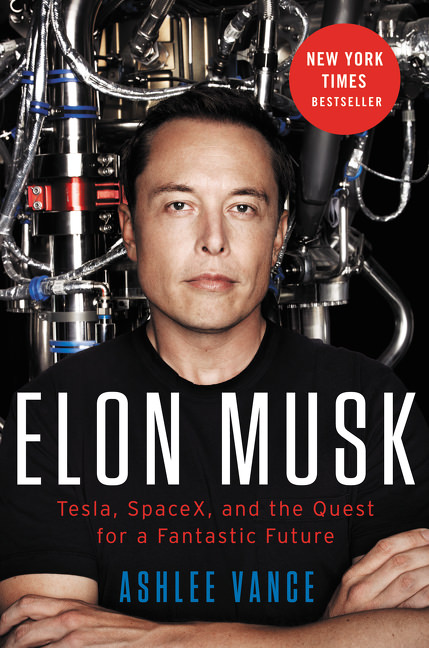
This book was on my currently reading list back in June. Two weeks after the post went up, I was finished. Everyone knows that Elon Musk is known for Tesla cars and SpaceX rockets but few know what he’s like as a person.
Even after reading the book, I can’t say that I understand him as a person. Elon Musk is exceptionally complex. He is clearly intelligent. He has unbreakable determination, willing to bet his life savings on his companies at the peak of global economic chaos in December 2008. He is a passionate father of five sons yet still very calculatingin how much time and emotion he allocates to family.
In interviews with co-founders, family, and employees, it became clear that labels or archetypes simply don’t grasp the complexity of the man. Elon isn’t diagnosed with anything on the autism spectrum. Though Musk inspired Robert Downey Jr,’s portrayal of Tony Stark in Iron Man, Musk doesn’t have the empathy of Stark. Musk even fired his long time secretary, Mary Beth Brown, unimaginable for the fictional Stark and his secretary Pepper Potts.
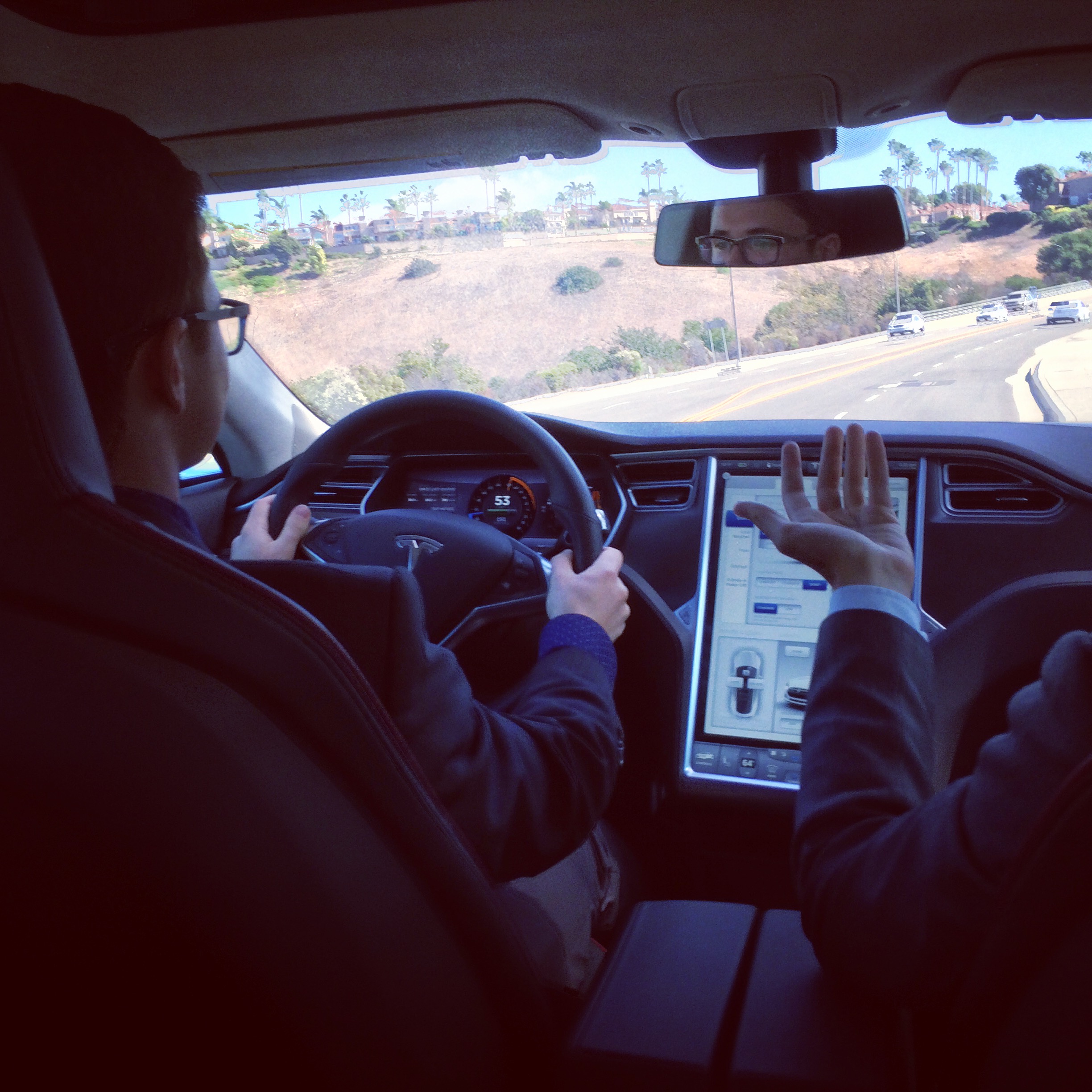
Elon Musk is unique. Of all his accomplishments, his realistic perspective on clean energy economics is like a breath of fresh air in the “green” industry that primarily uses moral arguments to push their agenda.
Similar to Bill Gates, Musk believes that until solar or nuclear energy is cheaper than coal, there will be no mass migration away from fossil fuels.
While Gates funds a diverse set of clean energy initiatives, Musk focuses on optimizing all aspects of the solar economics equation. Solar City has drastically improved per unit costs and user experience for solar panel installation. Tesla’s new Powerwall makes it possible to store energy and live entirely off the grid. And of course, Tesla cars are completely emission free (and jaw-droppingly fun to drive).
I eagerly look forward to the day I can live off the grid in a small solar powered house with a Tesla in the driveway.
This book gives a deeper look into the man who will make this future a reality for us all.
Emotional Intelligence 2.0 - Travis Bradberry & Jean Greaves
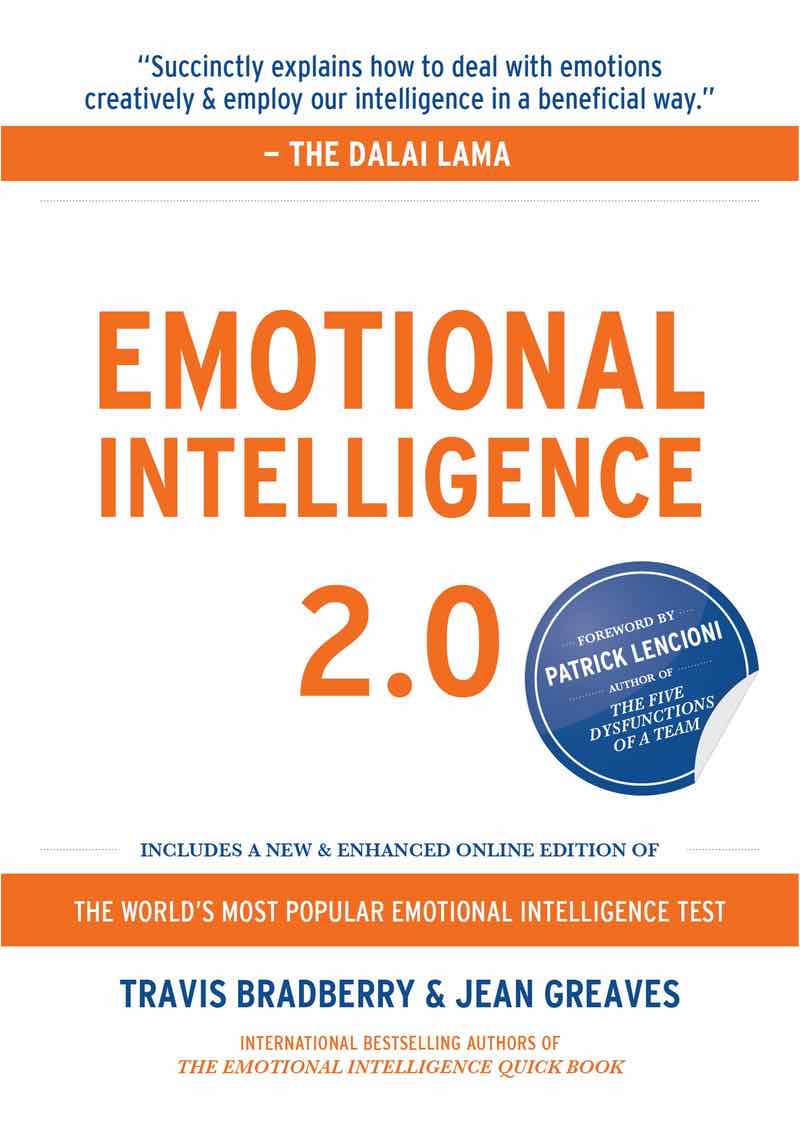
I received this as a gift for my birthday in June and it certainly played as an ironic book to read after Elon Musk. It’s a concisely written book with many examples for the four areas of personal competence (self-awareness and self-management) and social competence (social awareness and relationship management).
Each category came with 15-20 strategies that, though many sounded completely intuitive (“Don’t be fooled by a bad mood”, “Know who and what pushes your buttons”, “Count to Ten”…), had me quickly thinking of ways I could be using them more effectively.
When reading, I almost always found myself imagining times when I (or somebody I knew) had successfully used (or failed to use) the strategy. Unlike Myers-Briggs, DISC, and EQI assessment literature, Emotional Intelligence 2.0 gave me practical insights and was engaging.
Looking at successful people across industries and times, the ability to read, manage, and manipulate emotions has built empires, won wars, and inspired generations of people. Learning these skills ourselves gives us a good foundation to be successful in our own life, and I’d recommend this book as a good place to start if you’re a rookie like me.
Stephen Harper - John Ibbitson
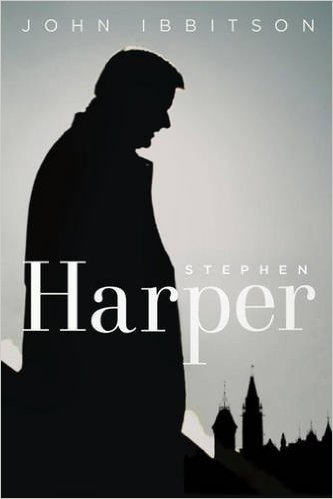
Okay, I confess. I follow politics. Mostly US politics (way more exciting) but this year was special. 2015 was a election year in Canada, and what a roller coaster it was.
Despite growing up with Stephen Harper as Prime Minister for most of my life, I didn’t know much about him. This book was a unique window into one of the most reclusive men to ever hold the office.
The book works in chronological order through young Steve’s growing up in Toronto suburb, Leaside, health problems that made him more hockey fan than player, and a short lived university education at University of Toronto’s prestigious Trinity College. The Trinity College section was fascinating having read months before about Jim Balsille’s time there in Losing the Signal.
The elite Trinity College community that fostered RIM co-founder Jim Balsille’s competitive spirit, repelled Harper who dropped out within weeks of his freshman year.
Harper then escaped to Calgary where he transitioned from “Trudeau Liberal” to Reform conservative and from Steve to Stephen. Stephen Harper married, rose through the ranks of local riding associations, worked as assistant to MP’s in Ottawa, and eventually became leader of the Canadian Alliance Party which merged with the Progressive Conservatives in 2003 to become the Conservative Party that we know today.
I finally felt that I understood better some of the unique attitudes of Canadians living in the Western provinces. The latter third of the book goes behind the scenes of the scandals and major decisions that defined the Harper years. What was most fascinating though was that so many of the peculiarities of Harper’s behaviour and leadership style come down to a single character flaw.
Stephen Harper will take orders from no one.
Stephen Harper is the book one would write if given the above thesis statement as an essay prompt. Harper’s life is consistently used to point back as proof to this thesis, and the proof is compelling.
- Why would Harper drop out of UofT when he was an incredibly successful student in high school?
- Why would he consistently buck the traditional “House of Cards” ladder-climbing loyalty that dominated the logic of his political peers, and quit or alienate himself from nearly every position he ever held?
- Why would he break every PR rule by publicly attacking Canadian Supreme Court Justices?
- Why would he ignore and try to bury non-partisan government officials and their reports?
- Why, why, why…
Given this personality flaw that would have crippled most people to recurrent career failure and eventual humility, Harper’s journey is remarkable.
Charting a different path, Harper found a job where he would never have to take orders. And for almost 10 years, he never did.
Beyond just seeing behind the curtain of Canadian government, John Ibbitson’s Stephen Harper shares an understanding of how Stephen Harper, the man, thought and made decisions. His legacy is a complex one and I’m glad I read this book to see another side to the man who was our 22nd Prime Minister.
Homeland - Cory Doctorow
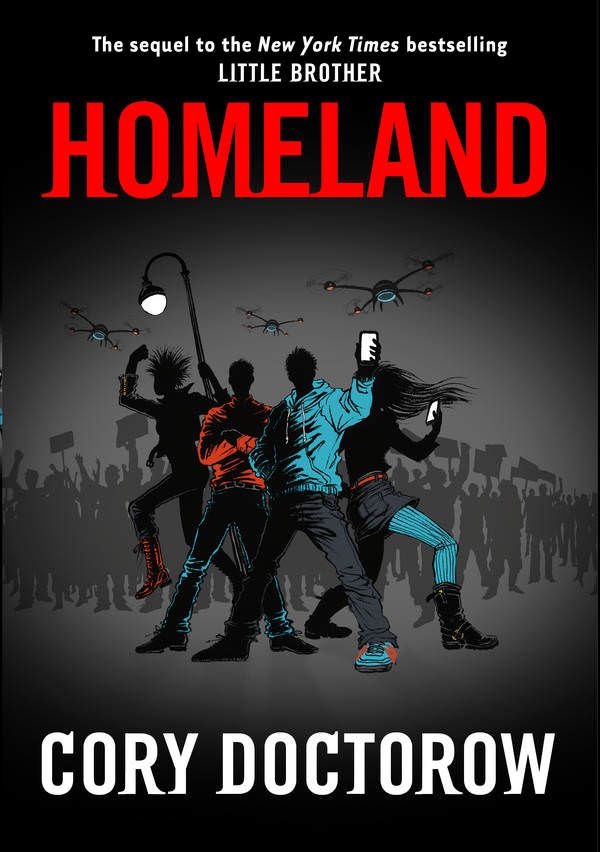 This is the sequel to Doctorow’s award winning Little Brother which I read earlier this year. Unlike most sequels, Homeland lived up to expectations.
This is the sequel to Doctorow’s award winning Little Brother which I read earlier this year. Unlike most sequels, Homeland lived up to expectations.
It’s another thrilling ride through the near future that is increasingly descriptive of the present we live in today. Edward Snowden. The NSA. PRISM. Encryption wars. Mass data collection.Cars being hacked.
Technology is no longer a tool for the people. It’s a tool for controlling the people.
Thankfully the future isn’t entirely here yet. PGP email encryption. ChatSecure.DuckDuckGo. TOR.There are many tools available that can keep your emails private from ad targeting, your chats with friends private from subpoenas to Facebook or Kik, and remove your searches from Google’s records.
It takes minutes to install these tools. But they are useless unless our friends and family use these tools too.
Please give them a try, send me your PGP fingerprints! Help your family and friends understand why privacy and encryption is important.
Help make our future one where privacy and freedom still exist. A future where we don’t need to fear prying eyes from corporations or governments.
You may hear people say that we don’t need these tools if we don’t have anything to hide. Do you enjoy walking outside naked? Or having private conversations with loved ones read aloud on CNN? Me neither.
Privacy has been an essential part of the human experience. Hoping that it continues to be doesn’t make anybody a terrorist.
Download Homeland for free on Cory Doctorow’s site
Being Mortal: Medicine and What Matters in the End - Atul Gawande
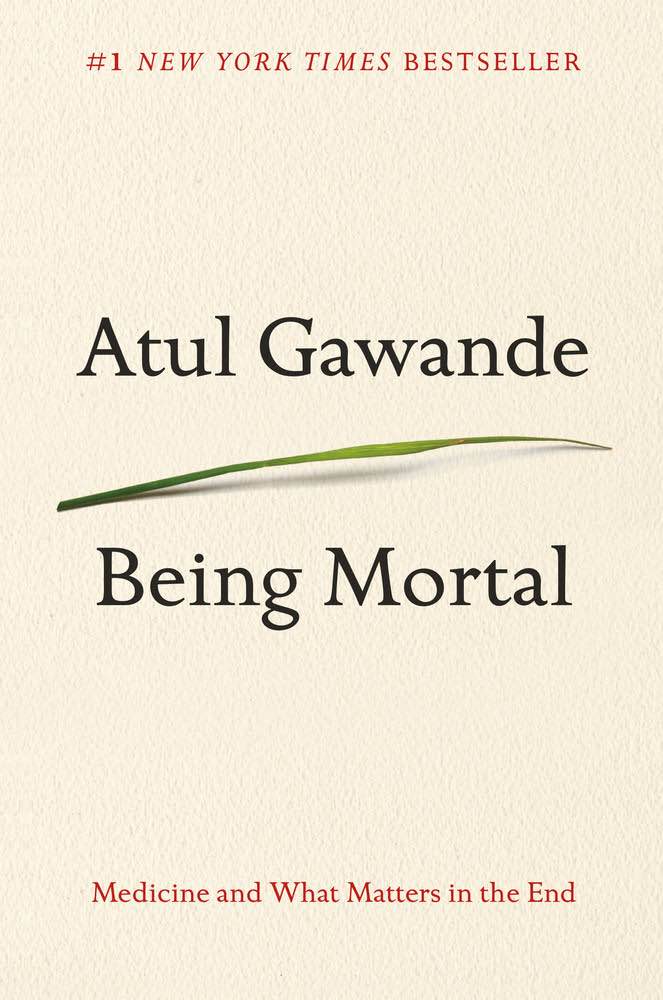
“Nothing is certain except death and taxes” - Benjamin Franklin
And leading up to death, is aging. In the Western world, aging often culminates in stay in a nursing home with progressively greater levels of care from assisted living to complete hospital style nursing. The elderly are treated more like patients than people, have their independence stripped from them, and lose a sense of purpose for their life.
Atul Gawande addresses the important question, “is there a better way?” with the perspective that only a surgeon can bring.
He works through the history of elderly care in the Western world, and how it works very differently everywhere else. While Western families move their elderly into nursing homes, most elderly in the rest of the world move in with their children’s families.
Multiple generations live under one roof. Grandchildren keep grandparents entertained and active. Grandparents pass wisdom on in day to day life, not just in hour long visits while they lay in a hospital bed. Nursing care happens in the family home where elderly can remain in a place they know with people they love.
Nursing homes are designed for medical care, for the families, for society. But rarely are they designed with their elderly in mind.
Being Mortal helped me realize that the vast majority of doctors don’t know when to say “enough is enough”. At some point, more medical treatment isn’t worth it when the extra weeks of life you might get aren’t a life worth living.
Other Readings

I also finished reading The Hobbit by J.R.R. Tolkien and You and Me Foreverby Francis and Lisa. Francis is one of my favourite authors and his book on building a marriage with perspective of eternity is excellent. Francis and Lisa are donating all proceeds to their project in in East Africa to free sex slaves, empower women, and build lasting communities.
After recommendations from family and friends over multiple years, I’m finally reading Good to Great by Jim Collins. Just a couple chapters in and I’m already starting to see why this book can change how you think about building an high performing organization that lasts.
I may not be a Level 5 leader yet, but I sure hope to be someday. Until then, I’ll keep reading. I hope you will to.